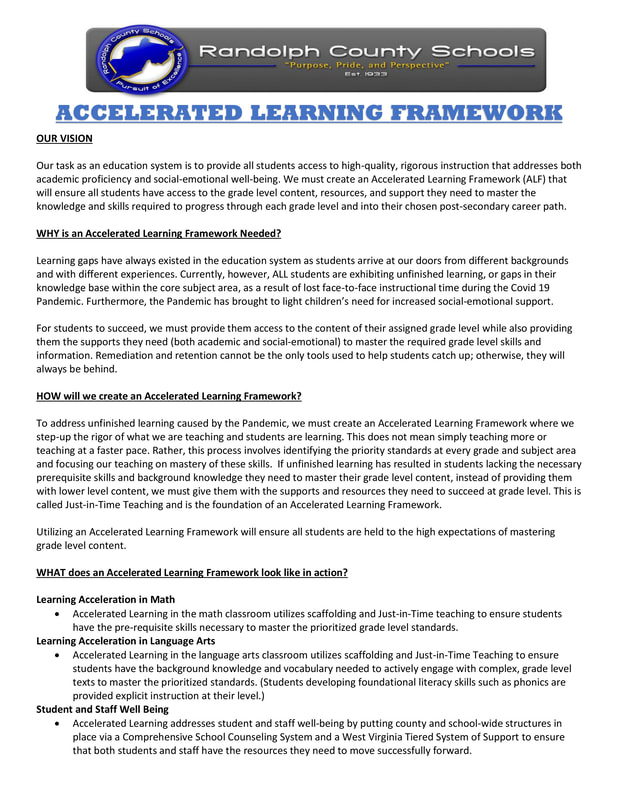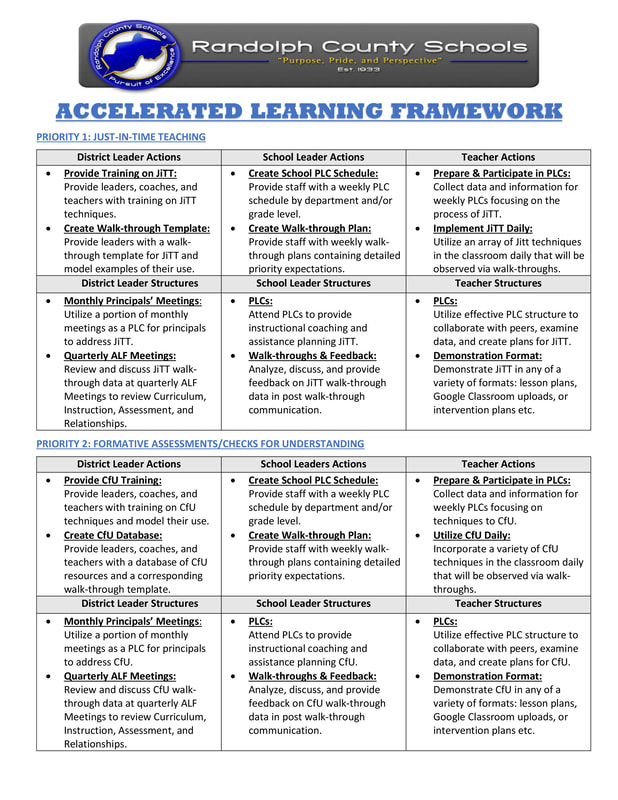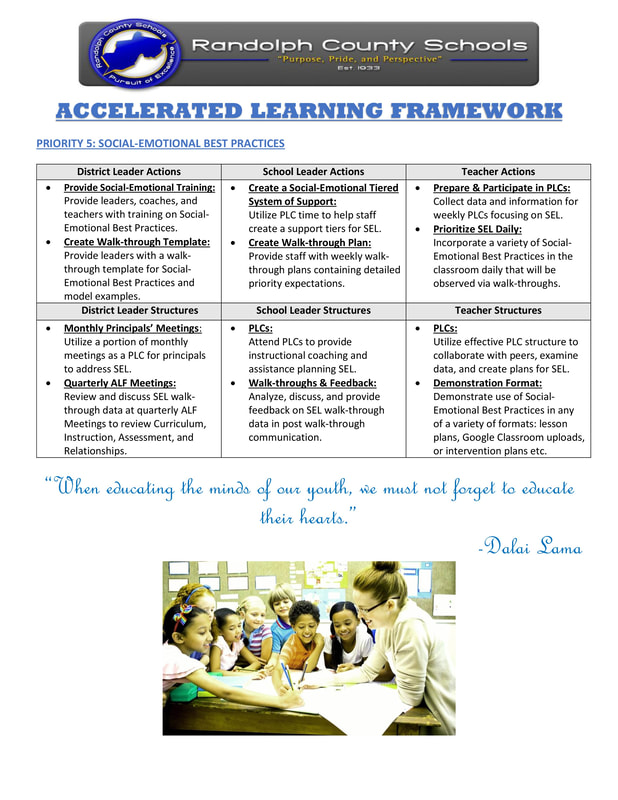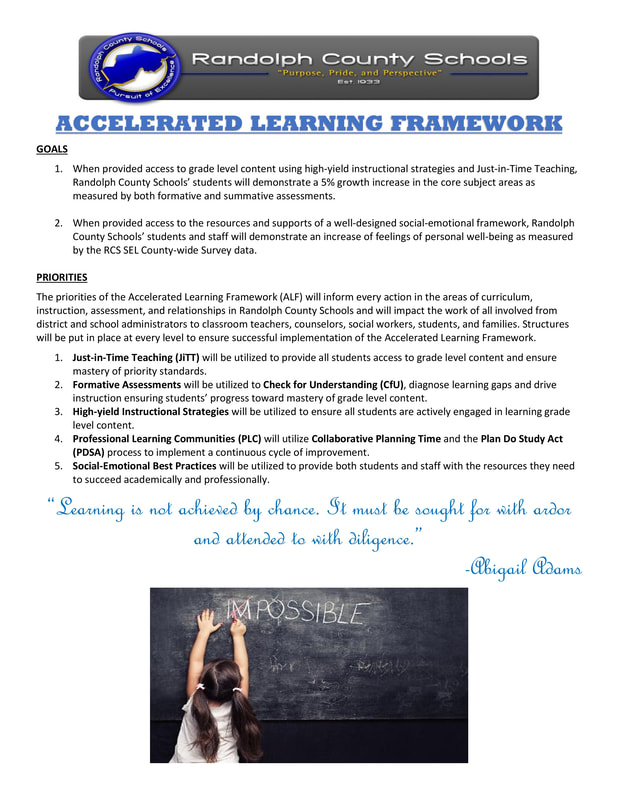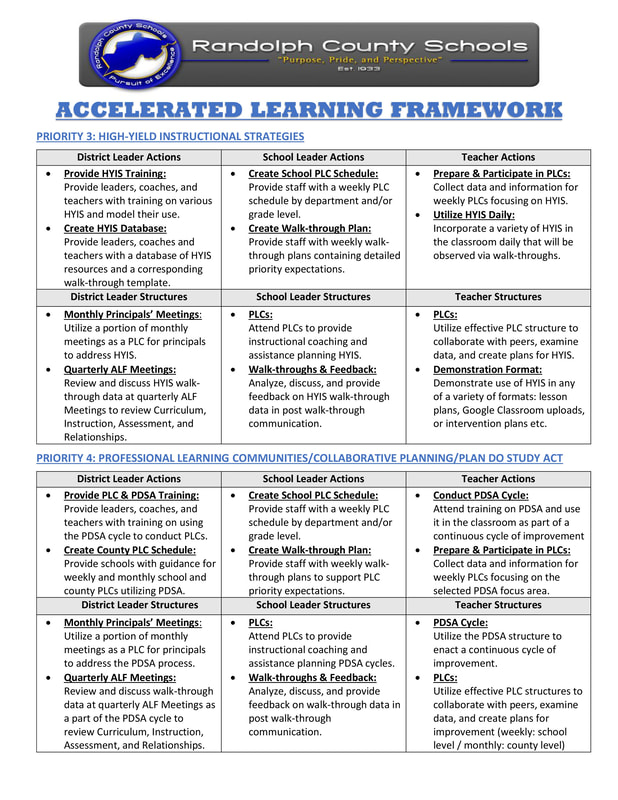Curriculum & Instruction
Amy Smith - Director of Curriculum & Federal Programs
40 Eleventh Street
Elkins, WV 26241
304-636-9154, ext. 138
Fax: 1-304-636-9157
Deborah White - Coordinator of Staff Development & Instructional Resources
304-636-9154, ext 137
RCS Accelerated Learning FrameWork
Teacher Qualification Review Notice/Parent's Right to KnowAs a parent of a student in Randolph County Schools, you have the right to know the professional qualifications of the classroom teachers who instruct your child. Federal law allows you to ask for certain information about your child’s classroom teachers and requires us to give you this information in a timely manner if you ask for it. Specifically, you have the right to ask for the following information about each of your child’s classroom teachers:
|
Curriculum Maps - Math (Click on the grade below)
|
College Transition Math
1st 9 Weeks 2nd 9 Weeks 3rd 9 Weeks 4th 9 Weeks |
